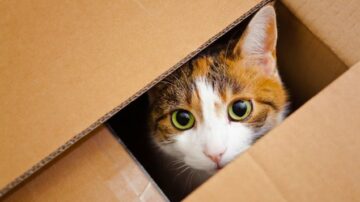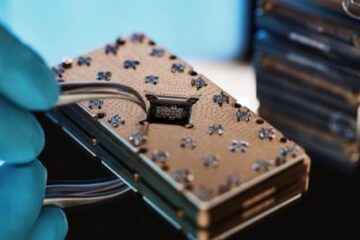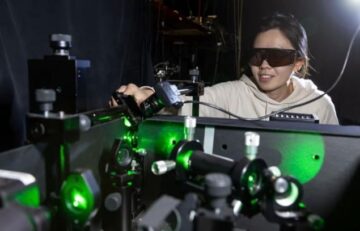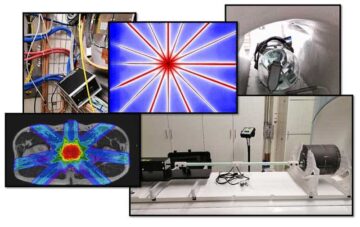
Astronomers have voiced their concern over an update by the International Astronomical Union (IAU) to its harassment policy, which they say helps to provide a safe space for harassers. The changes to the code were announced last week in an e-mail sent to IAU members from its president, Debra Elmegreen. The e-mail said that the IAU’s executive committee had modified its 13-page code of conduct to include a “substantive change” to its harassment policy.
According to the revised code, it is now “a form of harassment to physically or verbally abuse or discriminate against alleged offenders of IAU’s policies, or if such policies are found to have been breached, inflict (or pressure others to inflict) punishments besides those officially sanctioned”. The code also states that “the physical or verbal abuse or discrimination of those who work or have worked with the alleged or sanctioned perpetrator, simply because of their scientific collaboration, is also a form of harassment and as such is covered by this policy”.
After the changes were made public, some researchers questioned the motivation behind the modification and the wording itself, pointing out, for example, that it is not clear what the IAU means by the word “discriminate”. Some astronomers worry that it is now a policy violation to refuse to work with an astronomer who has been found guilty of harassment or that someone organizing an IAU conference, say, now cannot refuse an alleged harasser from sitting on an organizing committee.
‘Dreadful additions’
“The additions are dreadful, both in terms of their wording and in terms of the message they send – that the IAU is going out of its way to provide a safe space for harassers and their enablers,” Anna Watts, an astrophysicist at the University of Amsterdam, told Physics World. “The current wording, for example, would preclude a victim of harassment that occurred at an IAU event, even if that harassment were confirmed and sanctioned by the IAU, from reporting the incident to the perpetrator’s home institution or collaboration since this would be ‘pressuring for additional punishment’.”
I can easily see situations where an ally refuses to share a stage with a harasser and they are then subjected to a complaints process by the harasser
Emma Chapman
That view is echoed by Emma Chapman, an astrophysicist at the University of Nottingham in the UK. “I agree strongly that researchers should not be targeted for working with a harasser – sometimes they have no choice and are themselves being harassed,” she noted on X, formerly known as Twitter. “But I am very concerned about what counts as a ‘punishment besides those officially sanctioned’. Does asking not to work with a perpetrator count as a ‘punishment’ for which I myself could be sanctioned by the IAU? How about if I decline to speak on the same stage?”

Bullying and harassment in physics affects us all
In protest at the policy changes, Chapman penned a letter to Elmegreen, which has been seen by Physics World. “The first sentence [of the changed harassment code] does serve in its ambiguity to add a layer of protection to a proven harasser,” she writes. “I can easily see situations where an ally refuses to share a stage with a harasser and they are then subjected to a complaints process by the harasser.” Chapman adds that she does not believe that the intentions of the committee were malicious but more that “the way their words could be twisted were not properly considered”.
‘Fair treatment for all’
On 18 August, however, the IAU sent another e-mail to members, seemingly doubling down on the policy changes. “While several people have applauded the changes, some fear that the new policy will ‘protect’ harassers or force people to collaborate with alleged or known offenders,” the e-mail states. “But a careful reading of the full code of conduct will demonstrate this not to be the case.”
In a statement sent by the IAU to Physics World and attributed to Elmegreen, she reiterates that the code of conduct only applies only to IAU-related activities and that it is to “help and to foster professional respect and fair treatment for all”.
“The new wording in the code of conduct says that it is harassment to physically or verbally abuse or discriminate against people who are merely alleged to have breached the IAU Code of Conduct at an IAU activity,” notes Elmegreen. “The statement has no bearing on whom people choose to work with or associate with, including at IAU events.” The IAU says it will now be considering feedback from scientists who have written to it about the code.
- SEO Powered Content & PR Distribution. Get Amplified Today.
- PlatoData.Network Vertical Generative Ai. Empower Yourself. Access Here.
- PlatoAiStream. Web3 Intelligence. Knowledge Amplified. Access Here.
- PlatoESG. Automotive / EVs, Carbon, CleanTech, Energy, Environment, Solar, Waste Management. Access Here.
- PlatoHealth. Biotech and Clinical Trials Intelligence. Access Here.
- ChartPrime. Elevate your Trading Game with ChartPrime. Access Here.
- BlockOffsets. Modernizing Environmental Offset Ownership. Access Here.
- Source: https://physicsworld.com/a/astronomers-protest-at-international-astronomical-unions-updated-code-of-conduct-on-harassment/
- :has
- :is
- :not
- :where
- ][p
- 90
- a
- About
- abuse
- AC
- activities
- activity
- add
- Additional
- additions
- Adds
- affects
- AG
- against
- Agreement
- AI
- alleged
- Ally
- also
- am
- Ambiguity
- amsterdam
- an
- and
- announced
- Another
- ARE
- AS
- Associate
- At
- AUGUST
- b
- BE
- because
- been
- behind
- being
- believe
- besides
- both
- but
- by
- CAN
- cannot
- careful
- case
- changed
- Changes
- choice
- Choose
- claim
- clear
- code
- collaborate
- collaboration
- committee
- complaints
- Concern
- concerned
- Conduct
- Conference
- CONFIRMED
- considering
- could
- covered
- Current
- Decline
- demonstrate
- desk
- Discrimination
- does
- doubling
- down
- e
- easily
- echoed
- Even
- Event
- events
- example
- executive
- fair
- fear
- feedback
- First
- For
- Force
- form
- formerly
- Foster
- found
- from
- full
- FY
- going
- guilty
- had
- Hands
- harassment
- Have
- head
- helps
- Home
- How
- However
- HTTPS
- i
- if
- image
- in
- incident
- include
- Including
- inflict
- information
- Institution
- intentions
- International
- issue
- IT
- ITS
- itself
- jpg
- known
- Last
- layer
- letter
- made
- max-width
- means
- Members
- merely
- message
- modified
- more
- New
- new policy
- no
- noted
- Notes
- now
- occurred
- of
- Offers
- Officially
- on
- only
- or
- organizing
- Others
- out
- over
- People
- person
- physical
- Physically
- Physics
- Physics World
- plato
- Plato Data Intelligence
- PlatoData
- policies
- policy
- president
- pressure
- process
- professional
- properly
- protection
- protest
- proven
- provide
- public
- Questioned
- R
- Reading
- Reporting
- researchers
- respect
- s
- safe
- Said
- same
- Sanctioned
- say
- says
- scientific
- scientists
- see
- seemingly
- seen
- send
- sent
- sentence
- serve
- several
- Share
- she
- should
- simply
- since
- Sitting
- situations
- some
- Someone
- Space
- speak
- Stage
- Statement
- States
- strongly
- such
- T
- targeted
- terms
- that
- The
- the UK
- their
- themselves
- then
- they
- this
- those
- thumbnail
- to
- treatment
- true
- Uk
- university
- Update
- updated
- us
- very
- Victim
- View
- VIOLATION
- W
- Way..
- week
- were
- What
- which
- WHO
- will
- with
- Word
- wording
- words
- Work
- worked
- working
- world
- worry
- would
- written
- X
- zephyrnet












